In the fast-paced world of small business, managing day-to-day operations can be all-consuming, leaving little time to focus on other important aspects, like comprehensive insurance policies. You might be paying for insurance, but have you ever stopped to consider if your coverage is sufficient? If you’re underinsured, you could be facing a significant financial risk, especially in the event of a disaster.
Underinsurance isn’t just a theoretical problem; it’s a real issue that could leave your business exposed to massive losses. We’ll explore what it means to be underinsured, how to find out if your small business is at risk, and what you can do to protect yourself.

What Does It Mean to Be Underinsured?
Being underinsured means that the insurance coverage you have is not enough to cover the full value of your assets or the cost of potential claims. This shortfall can be particularly devastating in the case of a disaster. Imagine your business premises are insured for $3 million, but the actual cost to rebuild and replace your building and contents is $4 million. If a fire were to destroy everything, you could be left $1 million out of pocket.
But it doesn’t stop there. Even if the damage is less than the insured amount, your claim may not be fully reimbursed due to something known as a co-insurance clause.
Understanding the Co-Insurance Clause
Many insurance policies include a co-insurance clause, which is triggered if you’re insured for less than the full value of your property. This clause can significantly reduce the amount of your claim.
Michael White, Broker Technical Manager for Steadfast Group, explains: “In very broad terms, [the co-insurance clause] reduces the amount of the claim by the percentage by which you’re underinsured.”
To put it into perspective, if the damage to your property amounts to $2 million, but you are underinsured by 25%, you may only receive 75% of your claim, leaving you to cover the remaining 25% out of pocket. This is why it’s crucial to ensure your business is adequately insured to avoid any unwelcome surprises when you need your coverage the most.
How to Determine If Your Business Is Underinsured
Determining whether your small business is underinsured doesn’t have to be a complicated process. It starts with understanding the replacement cost of your assets and comparing that with your current policy limit. Here’s how you can go about it:
1. Review Your Policy Limits
The first step in determining whether you’re underinsured is to review your current policy limits. This is the maximum amount your insurance policy will pay out in the event of a claim. It’s essential to compare this limit with the actual replacement cost of your property and other insured assets.
2. Calculate the Replacement Cost
The replacement cost is the amount it would take to replace or repair your property with something of similar kind and quality. This includes buildings, machinery, equipment, and inventory. The Insurance Council of Australia provides free online calculators that can give you an idea of the replacement value of your property. However, these calculators are only a guide and may not account for unique features or specific needs of your business.
3. Get a Professional Valuation
For a more accurate assessment, consider hiring a professional valuer. They can provide a detailed valuation of your building and other assets, ensuring that your insurance cover aligns with their actual value. Michael White advises, “A valuer will provide a much more accurate assessment of the value of your building and any other assets such as machinery covered by your policy.”
4. Consider Business Growth and Inflation
Your business isn’t static—it’s growing and evolving. The value of your assets and the cost to replace them can change over time due to inflation, market conditions, and business growth. What may have been adequate coverage when you first purchased your policy may not be sufficient today. Regularly updating your valuation and adjusting your policy limits accordingly can help prevent underinsurance.

What to Do If You Think You’re Underinsured
If you suspect your business might be underinsured, it’s crucial to take immediate action. Here’s what you can do:
1. Consult with an Insurance Broker
An insurance broker can be an invaluable resource when assessing your coverage needs. They have the expertise to help you identify everything your business depends on to operate and can assist you in finding the most appropriate cover. As White notes, “Every business is different, and your insurance should be tailored to your needs. You need to be sure you’re not left vulnerable in certain areas or paying for cover you don’t need.”
Working with a reputable broker like All Star Brokers can provide peace of mind, knowing that your business is fully covered without paying for unnecessary extras. A broker can also help you navigate complex insurance terms and conditions, ensuring you understand what your policy covers and what it doesn’t.
2. Adjust Your Coverage
If you find that your coverage is lacking, don’t wait to adjust it. Increase your policy limits to match the current replacement cost of your assets. If you’ve added new equipment or expanded your business, ensure these changes are reflected in your insurance policy.
3. Review Your Insurance Annually
Once you’re confident that your business is adequately insured, it’s vital to review your coverage regularly. “Your business is evolving, and replacement costs are changing all the time,” White says. Regular reviews will help you keep pace with these changes, ensuring your coverage remains adequate year after year. This is particularly important if your business has undergone significant growth or if market conditions have shifted.
The Risks of Being Underinsured
Many small businesses find themselves underinsured by accident. This can happen for several reasons:
- Misunderstanding What’s Needed: Insurance can be complex, and it’s easy to misinterpret what types of coverage your business requires.
- Miscalculating the Value of Assets: Estimating the value of your assets can be tricky, especially if you’re not familiar with current market values or replacement costs.
- Underestimating Business Growth: Your business may have grown faster than you anticipated, leaving your insurance coverage lagging behind.
- Neglecting to Review Insurance Policies: With the demands of running a business, it’s easy for insurance reviews to slip down the list of priorities.
These oversights are understandable, but they can be disastrous if you only realise you’re underinsured when it’s too late. In the worst-case scenario, being underinsured could mean losing everything you’ve worked so hard to build, including your business itself.
Essential Protection for Peace of Mind
The best way to ensure your business isn’t underinsured is to take a proactive approach. Regularly assess your coverage needs, consult with an insurance broker, and adjust your policy as your business evolves. By doing so, you can safeguard your business against unexpected events and avoid the financial strain that underinsurance can cause.
For small businesses, finding the right insurance broker is crucial. A local expert like All Star Brokers can provide tailored advice and coverage options that meet the unique needs of your business. Don’t leave your business exposed—ensure you have the right protection in place so that you can focus on what you do best: growing your business.
Underinsurance is a common issue for small businesses, but it’s one that can be addressed with the right knowledge and support. By understanding the risks, regularly reviewing your coverage, and working with a trusted insurance broker, you can protect your business from the financial fallout of being underinsured. Take the time to assess your insurance needs today, and rest easy knowing that your business is fully covered.
If you’re unsure about your current coverage or need assistance finding the right insurance, contact All Star Brokers for expert advice and personalised service. Your business is too valuable to leave underprotected—make sure you’re covered for whatever the future holds.
Important notice
All information in this article is of a general nature only. This information does not take into account your specific objectives, financial situation or needs. It is also not financial advice, nor complete, so please discuss the full details with your All Star Brokers insurance broker. Information is subject to change.
Steadfast Group Ltd ACN 073 659 677
Important notice – Steadfast Group Limited ABN 98 073 659 677 and Steadfast Network Brokers
This article provides information rather than financial products or other advice. The content of this article, including any information contained in it, has been prepared without taking into account your objectives, financial situation or needs. You should consider the appropriateness of the information, taking these matters into account, before you act on any information. In particular, you should review the product disclosure statement for any product that the information relates to before acquiring the product.
Information is current as at the date the article is written as specified within it but is subject to change. Steadfast Group Ltd and Steadfast Network Brokers make no representation as to the accuracy or completeness of the information. Various third parties have contributed to the production of this content. All information is subject to copyright and may not be reproduced without the prior written consent of Steadfast Group Limited.
